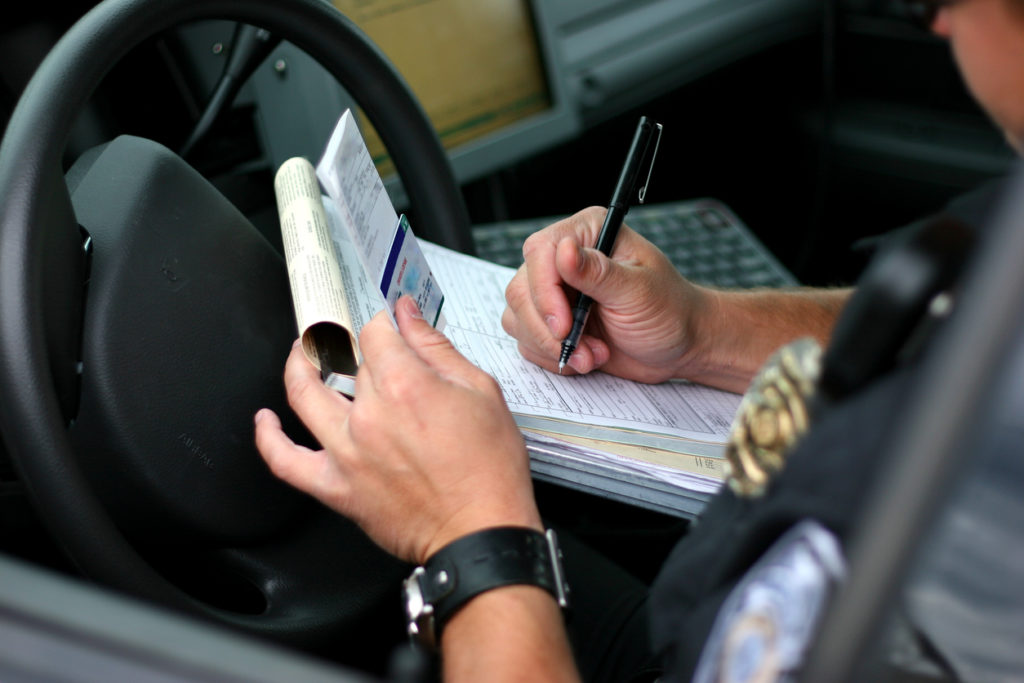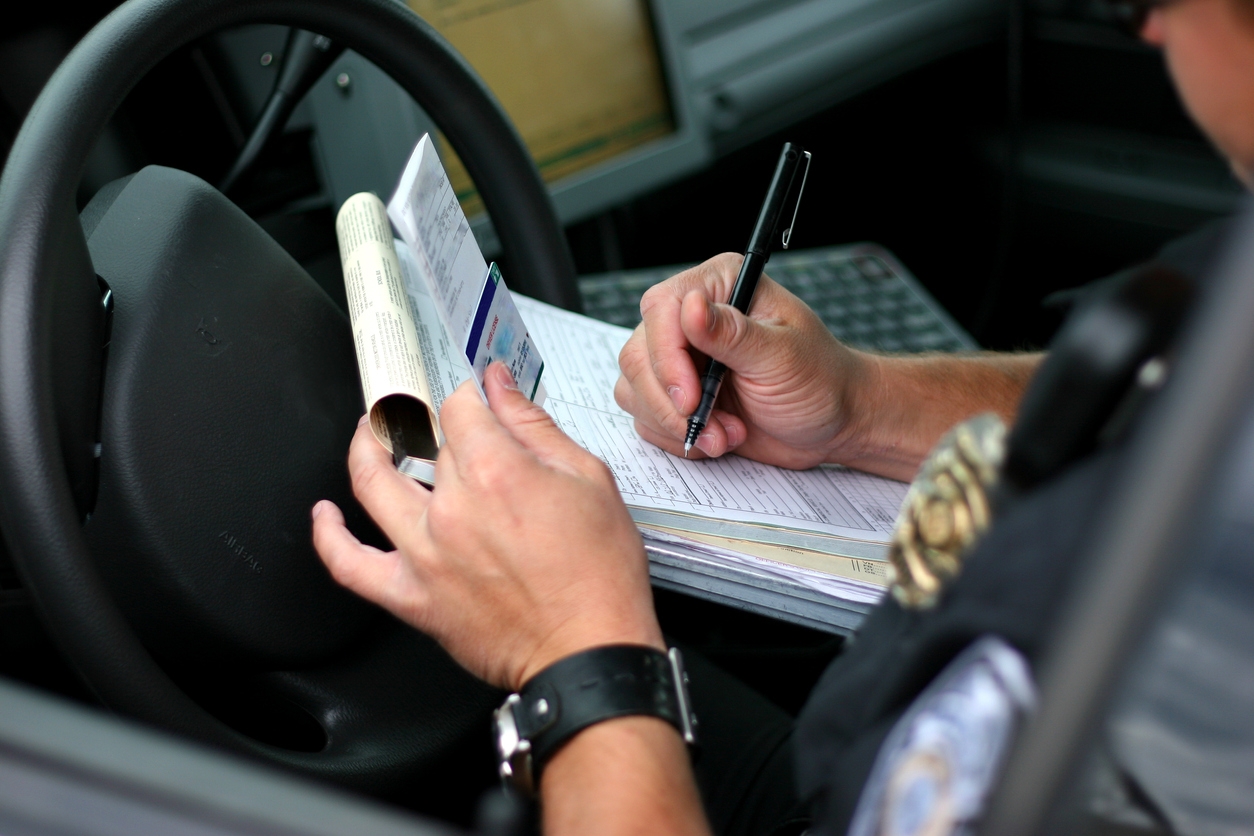By: Mike Gheller, NYPD | Date Published: 3/8/21


Mike Gheller, NYPD
Officer Mike Gheller is a 31-year-old native New Yorker and 7-year veteran with the New York City Police Department. He is currently an investigator in Brooklyn, where he handles summons, injury and property-damage-only accidents, hit-and-run accidents, and vehicle theft.
As an experienced police officer, I know being in a car accident is a stressful experience. Especially in serious accidents, people often get hurt, hurt others, or both. When police show up at the scene of an accident, a lot of drivers worry that the officer will decide they were the one who caused the accident.
Cops have to consider a lot of information at the scene, so it’s important to make sure your side is documented accurately. After filling out over 100 accident reports, here is my advice for how to do that.
1. Be calm and patient. It’s not easy to do, but if you can, be calm and be patient. Police will arrive on the scene as soon as possible, especially when serious injuries are involved. No matter how long it takes, though, it can feel like forever to those who were involved. We get it.
Of course, if people are hurt, we have to attend to them first. Taking statements is important, too, but sometimes that has to wait. If the EMS team wants to take you to the hospital and you haven’t yet given a statement, go! We will get the information from you once you’ve been stabilized and treated.
2. Only talk to one officer. Once police arrive on the scene, there are usually two of us. You should just approach one. Don’t try to talk to two cops at the same time. One cop might miss something or not hear you. Just speak to one directly and focus on telling the story to him or her.
3. You don’t have to be first. A lot of people think if they tell their side first, the cop will take them more seriously. That’s not the case. Cops are trained to be unbiased and listen to both sides equally. If there’s only one cop and he or she goes up to the other driver first, don’t worry. When it’s your turn, you will be taken just as seriously as the other person.
4. Wait until the officer gives you his/her full attention. If a person isn’t badly injured, one or both cops may spend some time looking at the damage to the vehicle, speaking to EMS, helping an injured passenger, or something else. Don’t try to talk to the cop until he or she is done with whatever he or she is doing. If you don’t have the officer’s full attention, details might be missed.
5. Less is more. You should never lie to a cop. At the same time, you don’t want to say anything you might later regret. That includes mentioning if you were speeding, texting, ran a red light, or anything else like that. Most people don’t realize you don’t have to admit you committed a traffic violation or were at fault for the accident.
That might sound odd to hear a cop say, but it’s true. If you tell the officer that you were on the phone and then you hit something, then we have to write that down. Legally, all you have to do is tell us the basics. For example, you can say, “I was driving down the street in this direction and he came this way and we collided.”
The damage can usually tell the real story. It shows the point of impact and direction. The exception is in rear-end accidents, but even then we can often figure out what happened.
6. Speak plainly. You may be a doctor or professor, but that doesn’t matter on an accident report. Don’t try to impress anyone with fancy words. The officer is just going to write down the most basic facts: Vehicle 1 did this; Vehicle 2 did that. The report needs to be readable regardless of level of education, so just speak in layman’s terms.
7. Don’t interfere with the investigation. We appreciate when a person is friendly and approachable at an accident scene, but remember that we’re there to do a job. If you are overeager or trying to steal the show, constantly vying for attention and intervening in interviews with other drivers or passengers, it hurts your credibility. We wonder, “what is this person hiding?” Don’t interfere or distract. Sometimes people do that because they are nervous, but other times it feels suspicious or guilty.
8. Don’t worry about what the other driver says. A lot of people worry that the other driver is going to tell a version of things that makes them look bad. Don’t worry about that; it’s the officer’s job to sort out the truth. Let them do it. Don’t listen in or interrupt with your own version. You’ll get your chance to give your statement and the damage will tell the rest of the story. Again, if you interfere, it can hurt your credibility.
9. Don’t sweat documentation. Police will always ask for ID, registration, and insurance at an accident scene. If you can’t find it or all you have is an outdated card, don’t worry too much. As long as your license, registration, and insurance are up-to-date, there’s usually a way around it. For example, your registration is on the windshield of your car. In addition, a cop can check your license by running your plates. For proof of insurance, you can always bring it to the precinct the next day and we can amend the report with the information.
Of course, technically you are required by law to have those documents on you. If a cop does write you a ticket for not having documentation, you can always bring the proof to court and may be able to get it dismissed. The only time it’s an issue is if one of those documents has legitimately expired or you never had it to begin with.
10. If you’re hurt, say something. If you have any kind of pain—no matter how big or small—tell the officer so it’s documented. It could be a minor bruise or sprain, but it also could be something more serious. You could be in shock, in which case you may not feel the worst of your injuries until later that day, or even the following day.
The biggest argument that a lot of insurance companies have in a civil case is that no injury or pain was reported in the accident report. Sometimes that’s the only defense they have.
11. Accept medical attention. If you complain of pain but deny medical attention, the pain is documented on the accident report but now you’re considered a non-injured party for refusing treatment at the scene. Yet, you could wake up the next day and be in agony. That makes it harder for you to connect the injury to the accident. Bottom line, if you’re hurt, accept medical help.
12. Don’t ask to amend the report unless it’s truly wrong. People often see the accident report and then wish they hadn’t said something, or think the cop got their statement wrong or left something out. If that’s true, you can ask to have it amended. If the officer realizes he made a mistake, he or she will usually fix it. For example, the report might say you were heading eastbound but you were actually heading westbound. The cop can check notes or check with the other officer and confirm this was just a clerical error. We can also amend missing information, like when you can’t find your current insurance card, or other mistakes, such as a misspelled name.
It’s important to note that we rarely change a fact, especially when it comes to statements. You can’t change part or all of your story because then the other party comes to get the accident report and wants to change things too. Suddenly, the credibility of the entire report goes out the window.










 888-815-3649
888-815-3649
